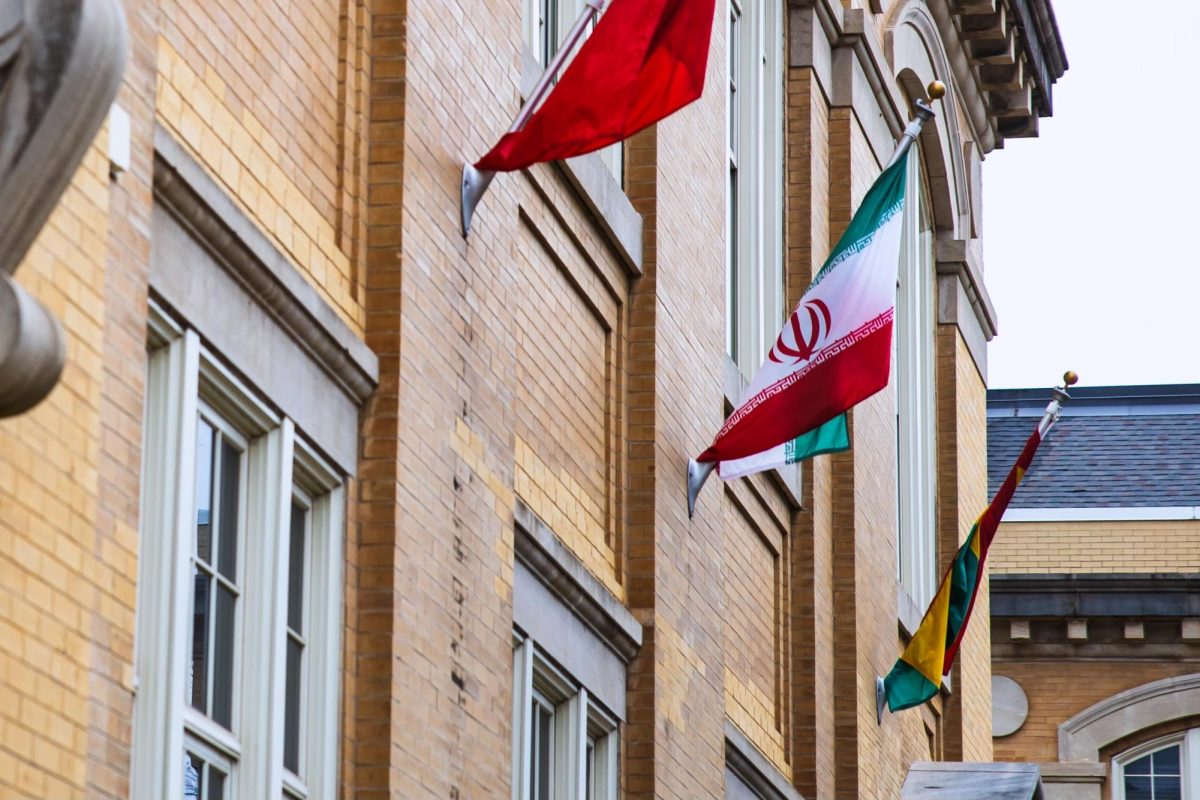“o’er the land of free, and the home of the brave.”
So concludes the Star Spangled Banner’s description of the nation over which our country’s flag flies.
Perhaps lost in the pomp and circumstance of the occasions during which we stand, face the flag, and sing the Star Spangled Banner, is the fact that we aren’t engaging in a celebration of the flag itself, but of those ideals embodied by it. Namely that it flies “o’er the land of the free” – a land where no man can make another stand, bow, or kneel for anyone or anything against his will. A land where men can speak freely without fear of reprisal from the government. That’s what we celebrate during the national anthem, and those are the freedoms for which our soldiers fought and died in our homeland and abroad.
It’s in this context, and in this country, in which our Presidential leader recently said, “Wouldn’t you love to see one of these NFL owners, when somebody disrespects our flag, you’d say, ‘Get that son of a bitch off the field right now. Out! He’s fired.'”
That a government official, much less the President of the United States, would encourage a private entity to fire an employee because of that employee’s expression of his beliefs is in itself deeply disrespectful of the ideals for which our flag flies. What would the founders have thought about King George doing such a thing?
Of course, this whole situation really gives rise to two separate issues: one, the appropriateness of the President of the United States encouraging the firing of a private employee for the lawful expression of his personal beliefs, and two, the right of a private entity to hire and fire and discipline its employees as it wishes.
As for issue number two, recent events have not left us wanting for examples against which to compare this one.
Were you against the firing of James Damore from Google for expressing disagreement with the means of Google’s diversity initiatives? What about when Mozilla CEO Brendan Eich was forced to step down in the wake of revelations that he had donated to a campaign opposing the legalization of gay marriage in California? If you were against either of these two events, but would cheer were the NFL to discipline its players for likewise expressions of beliefs, it’s quite possible that you’re a hypocrite. Likewise, if you supported what happened to James Damore or Brendan Eich but would be outraged were the NFL to discipline the kneeling players, it’s possible that you too are a hypocrite.
Aside from this, you may object to the protests themselves – to either why or how they’re happening. I’ve seen fair and valid criticisms of both, the most common being that the time to protest isn’t during the national anthem – a time which should be reserved for paying respect to our country and to those who have fought and died to defend it.
But the fact remains that there are people who feel as if their interests are so overlooked as to necessitate kneeling during the national anthem in order to bring attention to their cause. You can’t wish or command it away. We must now determine how to respond, which we can do by either addressing the protests’ causes or their symptoms.
If we truly want a more united America, a better republic, we’ll work not simply to stifle dissent and quiet views we disagree with, but to address the causes of these protests themselves, to change hearts and minds or to change the circumstances that gave rise to them in the first place.
For example, it would be a very good thing for our country to be able to stand united to sing the national anthem – it’s deeply desirable for a people to give solemn recognition to things which bind them together. Rituals, public celebrations, and mutual recognitions of common goods can serve to strengthen social bonds and the social fabric of a people, but these observances are good insofar as they are willingly undertaken and observed.
The means are necessary for the ends in this respect, and to coerce the means is not only to disable the attainment of the ends but also to do harm to them. In more concrete terms, to coerce the participation of Americans in a celebration of the freedoms that Americans enjoy under the threat of being fired or publicly ostracized is not only antithetical to the flag but also deeply harmful to the social fabric of our country. It may make the country seem more united, but it serves only to gild it and hide the problems underneath.
Instead of making people stand for the flag, let’s create a country where everyone willingly wants to. I stand for a flag that represents my freedom not to.
Will Leathers is a senior majoring in Management Information Systems and Spanish.









